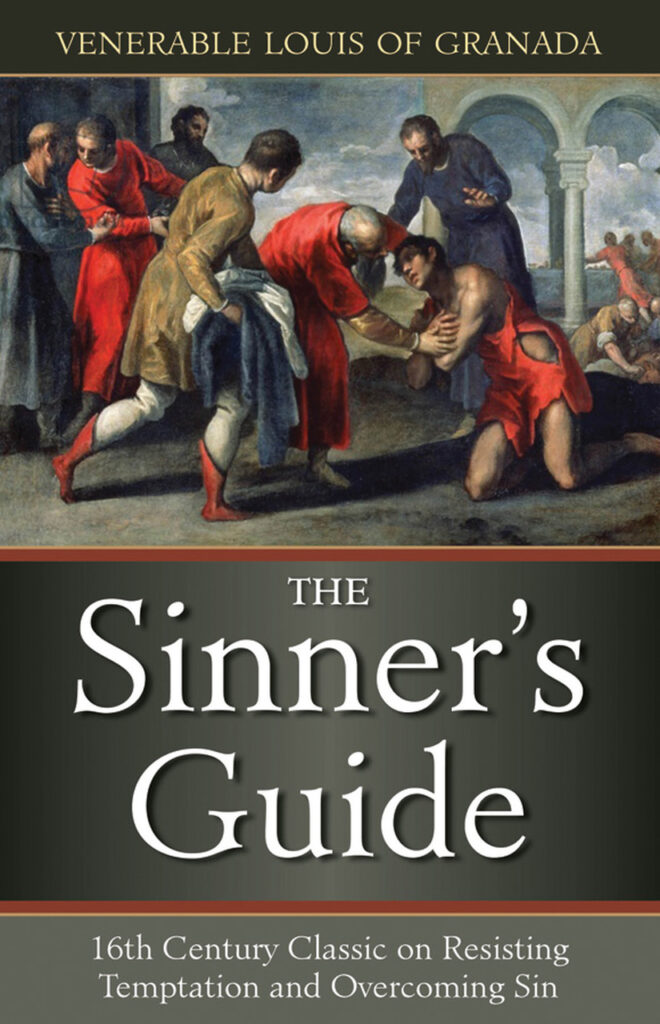Having thus regulated the body and all it senses, the most important reformation still remains to be effected, which is that of the soul with all its powers. Here the first to present itself is the sensitive appetite which comprises all our natural affections: love, hatred, joy, sorrow, fear, hope, anger, and other sentiments of a like nature. This appetite is the inferior part of the soul, which gives us our strongest resemblance to irrational animals, because, like them, it is guided solely by inclination.
Nothing degrades us more or leads us further from God. Hence St. Bernard says that if we take away self-love, by which he understands all the movements of the sensitive appetite, there will be no longer any reason for the existence of Hell.
The sensitive appetite is the arsenal which supplies sin with its most dangerous arms. It is the vulnerable part of the soul, a second Eve, frail and inconstant, heeding the wiles of the old serpent and dragging with her in her fall the unhappy Adam – that is, the superior part of the soul, the seat of the will and the understanding. Original sin is here manifested in all its power. Here the malignity of its poison is concentrated. Here is the field of man’s combats, defeats, and victories. Here is the school in which virtue is exercised and trained, for all our courage, all our merit consists in overcoming the blind passions which spring from the sensitive appetite.
This is why our soul is represented sometimes as a vine needing the careful pruning of the husbandman; sometimes as a garden from which the gardener must diligently uproot the weeds of vice to give place to the plants of virtues. It should be the principal occupation of our lives, therefore, to cultivate this garden, ruthlessly plucking from our soul all that can choke the growth of good. We shall thus become true children of God, guided by the motions of the Holy Spirit.
We shall thus live as spiritual men, following the guidance of grace and the dictates of reason, and not as those carnal men who, following the irrational animals, obey only the impulse of passion. This subjection of the sensitive appetite is the mortification so much commended in Scripture; the death to which the Apostle so frequently exhorts us; the practice of justice and truth so constantly extolled by David and the other prophets. Therefore, let it be the object of all our labors, all our prayers, and all our pious exercises.
Each one should carefully study his own disposition and inclinations, in order to place the most vigilant guard on the weakest side of his nature. We must wage constant war against all our appetites, but it is particularly necessary to combat the desire of honors, of riches, and of pleasures, for these are the roots of all evil.
Beware, too, of that pride which bears with no opposition. It is a fault which prevails among persons of elevated station accustomed to command, and to deny themselves no caprice. To conquer it, learn to deny yourself innocent gratifications, that you may more easily sacrifice those which are unlawful. Learn to bear contradictions with a dignity and patience worthy of a creature who was not made for the things of this world, but who aspires to immortality.
Such exercises will render us skillful in the use of spiritual weapons, which require no less practice than is necessary for the proper management of material arms. Much more important, however, is a skillful use of the former, for a victory over self, over pride, or over any passion far outweighs all the conquests of the world. Humble yourself, then, in the performance of lowly and obscure works, regardless of the world’s opinion; for what can it take from us, or what can it give us, when our inheritance is God Himself?
This article is taken from a chapter in The Sinner’s Guide by Ven. Louis of Granada which is available from TAN Books.









